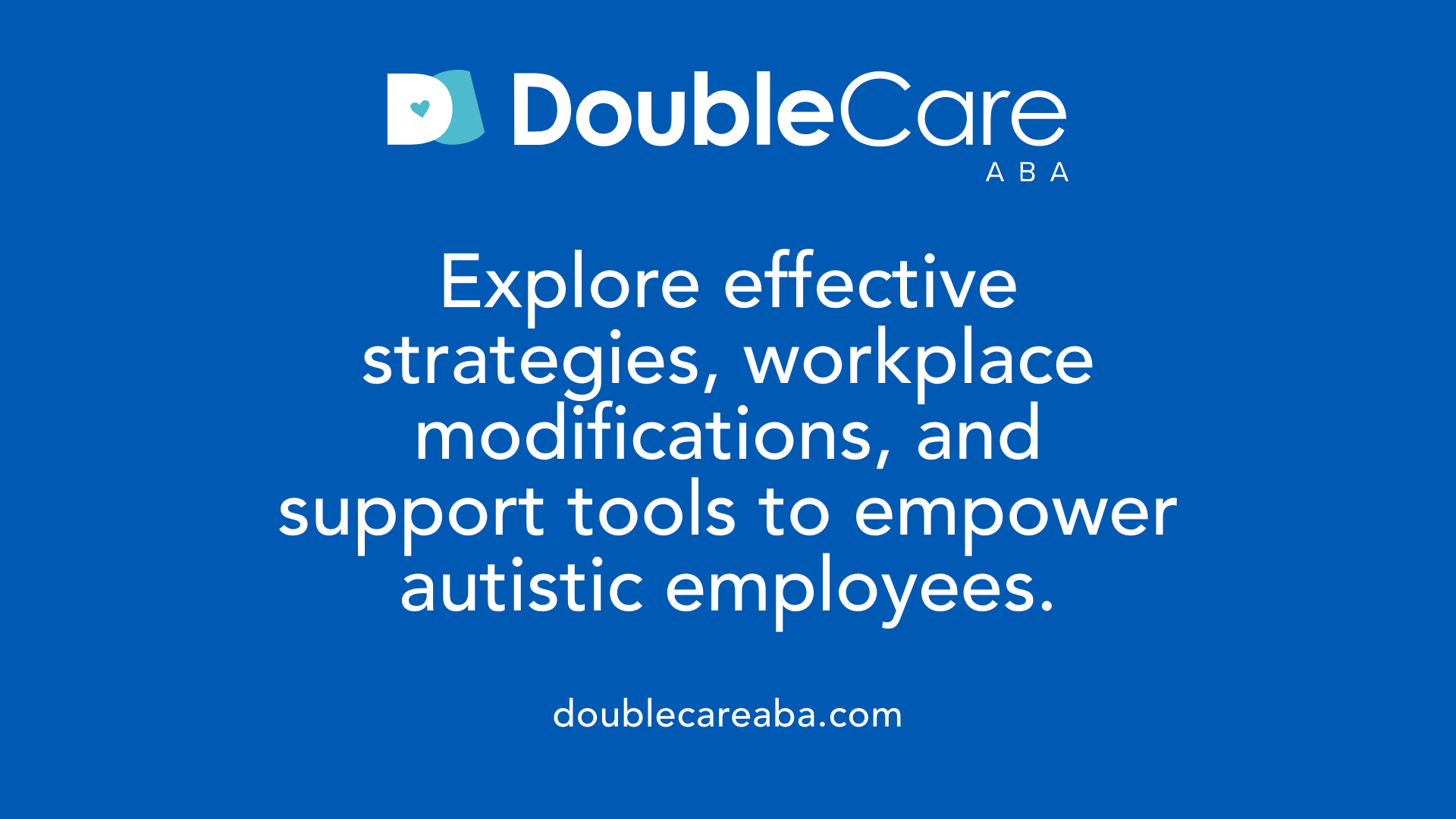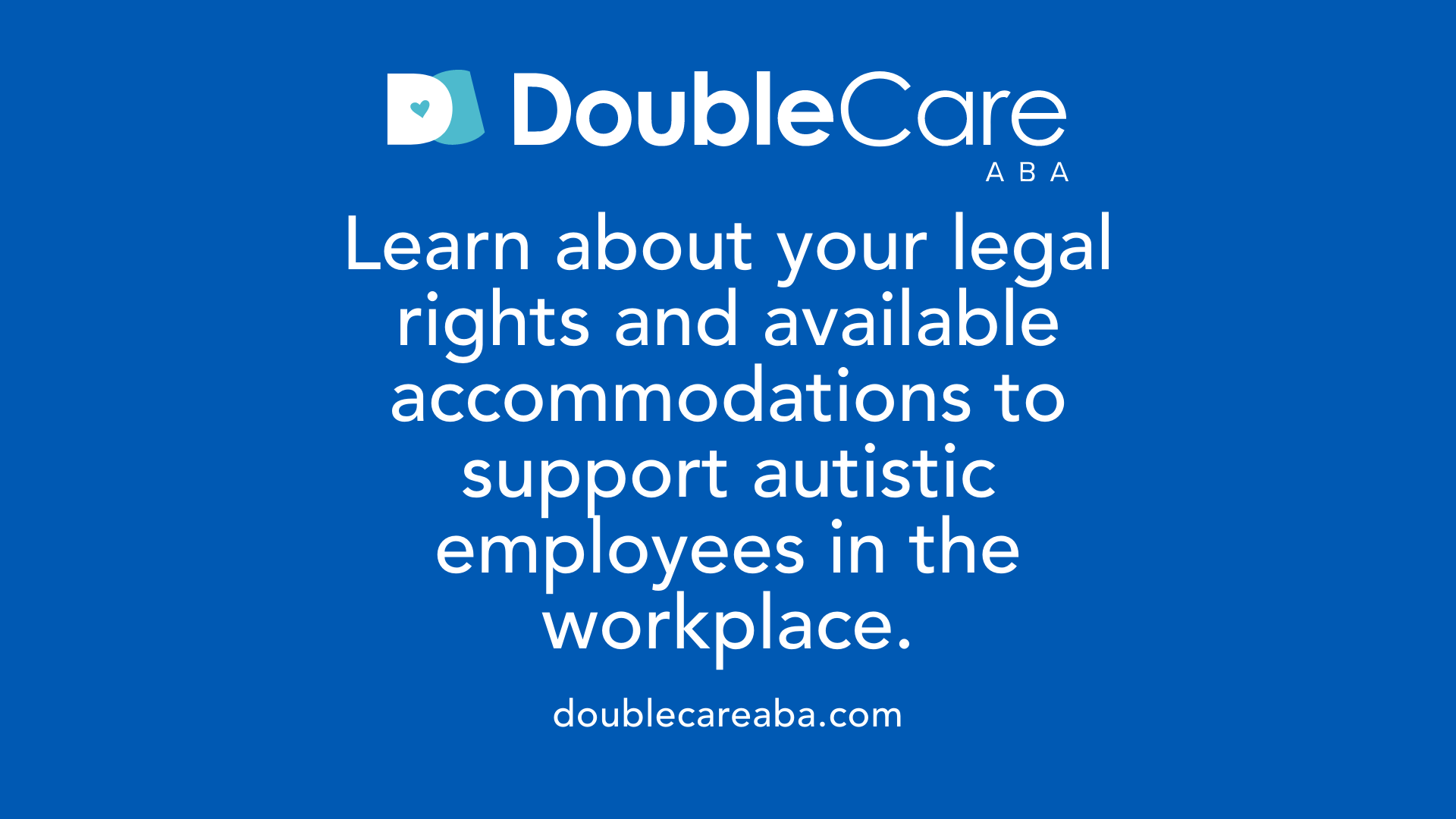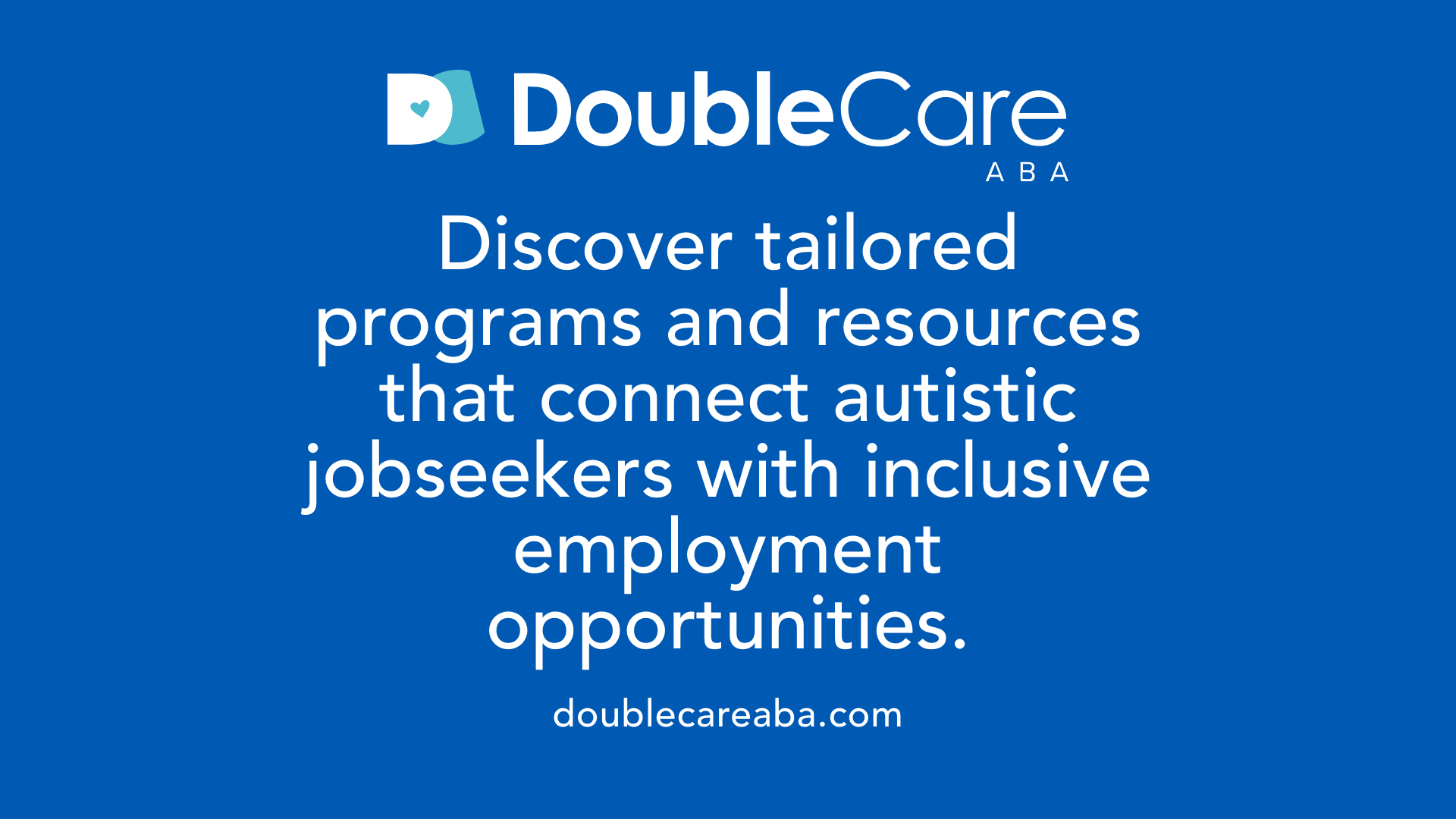Understanding Autism and Workforce Inclusion
The landscape of employment for autistic individuals is evolving, shaped by increased awareness, innovative programs, and legal protections. Despite persistent challenges, many autistic adults are seeking and securing meaningful employment, highlighting the importance of tailored support, workplace accommodations, and systemic change.
Employment Prospects and Opportunities for Autistic Individuals
What are the employment prospects and opportunities for autistic individuals?
Autistic adults face significant challenges but also have promising pathways into employment. Various initiatives and resources are actively promoting inclusive work environments and customized support tailored to their needs.
One prominent approach is supported employment models. These employ strategies such as job coaching, workplace adaptations, and targeted hiring programs to help autistic individuals secure and maintain employment. For example, organizations like Autism@Work and private companies such as Weifield Group focus on creating inclusive hiring practices, especially in sectors like IT, trade, and arts.
Emerging programs aim to connect autistic jobseekers with opportunities beyond traditional roles. Vocational rehabilitation services and mentorship programs offer critical support for resume building, interview skills, and workplace integration. These services are often provided through government agencies like the Social Security Administration or nonprofit organizations, which also provide guidance on workplace accommodations.
Despite these advancements, systemic issues still pose barriers. Current employment statistics reveal a high unemployment rate among autistic adults, with estimates ranging from 39% to 85%. Many are either reluctant to disclose their diagnosis or face misconceptions and discrimination in the workplace.
Efforts to improve employment outcomes include policy changes to support reasonable accommodations, awareness campaigns to enhance understanding, and initiatives that target increasing the visibility of successful autistic professionals.
In summary, while much progress has been made, sustained advocacy, systemic support, and greater employer awareness are essential to unlock the full employment potential of autistic adults.
| Support Programs/Resources | Focus Area | Description |
|---|---|---|
| Autism@Work | Employer engagement | Promotes inclusive hiring and workplace practices |
| Vocational Rehabilitation | Job support | Provides training, career counseling, and job placement |
| Job Accommodation Network (JAN) | Workplace adjustments | Offers guidance on reasonable accommodations |
| Mentorship Programs | Skill development | Connects autistic adults with role models and support systems |
| Nonprofit Training (e.g., TACT) | Trade employment | Prepares autistic individuals for skilled trades with industry partnerships |
Challenges Faced by Autistic Adults in Employment

What challenges do autistic adults face in securing and maintaining employment?
Autistic adults often encounter numerous obstacles when trying to find and keep jobs. Difficulties with social communication, such as reading body language and understanding social cues, can lead to misunderstandings with colleagues and supervisors. Sensory sensitivities—like Aversion to loud noises or bright lights—may make typical workplace environments overwhelming, causing discomfort and distraction.
Discrimination and societal perceptions also pose significant barriers. Many autistic individuals are misunderstood or wrongly judged as unmotivated or rude, which can hinder job prospects and career growth. Other challenges include health issues, such as anxiety or difficulties with executive functions like time management and planning, affecting their ability to perform consistently.
Barriers extend beyond the workplace. Many autistic adults face hurdles in accessing postsecondary education and training programs, which are crucial for developing job-related skills. These combined factors make employment difficult, but with proper support—such as workplace accommodations, inclusive policies, and targeted employment programs—long-term employment success can be achieved.
Why are employment opportunities limited for autistic adults?
Despite many having strong skills suited to specific jobs, barriers persist across multiple levels. Inadequate understanding of autism among employers, perceived societal biases, and inflexible work environments create an unwelcoming climate.
Employment sectors like trades, IT, and creative fields often see better integration because their roles align with the strengths of autistic individuals—attention to detail, technology proficiency, and visual thinking skills. Resources like job coaching, workplace adjustments, and awareness initiatives are essential to overcome these hurdles and promote inclusive employment.
Resources and strategies to improve employment outcomes
Efforts to support autistic adults include programs that offer tailored training, mentorship, and real workplace adaptations. The use of visual aids, sensory-friendly environments, and flexible schedules helps reduce stress and improve focus.
Research highlights the importance of community support, motivation, and independence in achieving employment stability. Addressing these areas with comprehensive support can lead to better job retention and satisfaction.
| Barrier | Impact | Support Strategies | Examples of Adapted Jobs |
|---|---|---|---|
| Social communication issues | Difficult interactions, misunderstanding | Communication training, peer mentoring | Technical jobs, visual arts, programming |
| Sensory sensitivities | Overstimulation, discomfort | Sensory-friendly spaces, noise-canceling devices | Trades, animal training, aircraft maintenance |
| Discrimination | Limited job opportunities, workplace exclusion | Inclusive hiring policies, awareness campaigns | IT sector, trades, artistic roles |
| Education and training barriers | Limited skill development | Tailored training programs, accessible education | Technical trades, computer programming, craftsmanship |
| Executive functioning challenges | Difficulty with planning, multitasking | Structured routines, task management tools | Factory work, warehouse jobs, data entry |
Supporting autistic adults in employment requires understanding their unique strengths and challenges. Through targeted resources, inclusive policies, and workplace adjustments, many can find meaningful and lasting careers.
Strategies for Supporting Autistic Workers

What strategies can support autistic individuals in finding and succeeding in work?
Supporting autistic adults in the workplace involves a combination of personalized support and environment adaptations that cater to their specific needs.
Firstly, personalized accommodations are essential. These can include providing clear and direct communication, visual supports like schedules or instructions, and establishing predictable routines to reduce anxiety and confusion.
Workplace modifications play a significant role. Sensory adjustments, such as offering noise-canceling headphones or creating quiet zones, help manage hypersensitivities. Flexible scheduling allows autistic workers to work during their most productive periods, and tools like timers or digital planners can assist with time management and task organization.
Creating an inclusive environment is crucial. Employers should foster a culture of respect, understanding, and openness about neurodiversity. This often involves training staff and managers on autism awareness and communication strategies.
Disclosure of an autism diagnosis can be beneficial, enabling employers to tailor support effectively, but it should always be voluntary and handled with confidentiality.
Evidence-based programs contribute significantly to employment success. Initiatives like Project SEARCH, which combines internships with job training, and virtual reality interview training, help prepare autistic individuals for the workforce.
Government schemes such as the UK’s Access to Work and similar services in other countries provide financial and practical support for workplace adjustments and job coaching.
In conclusion, effective employment support for autistic individuals requires a multi-faceted approach: customized accommodations, supportive work environments, community and government programs, and ongoing education and awareness among employers and colleagues.
Legal Rights and Accommodations for Autistic Employees

What are the rights, accommodations, and reasonable adjustments available for autistic employees?
Autistic employees are protected under various legislation that requires employers to provide accommodations that enable their full participation in the workforce. Under laws like the Americans with Disabilities Act (ADA) in the US and equivalent policies in other countries, individuals with autism have the right to request reasonable adjustments to support their employment.
Common accommodations include flexible work hours, quiet or sensory-friendly workspaces, and assistive technologies that help with communication and task management. These adjustments aim to reduce sensory overload and social stress, creating a more comfortable work environment.
Disclosing an autism diagnosis can make it easier to access these supports. While disclosure can foster workplace acceptance and improve understanding, it also involves weighing potential risks like stigma or misunderstandings. To navigate this, many organizations promote a culture of openness and confidentiality.
Employers are legally obligated to engage in an interactive process with the employee. This means actively discussing needs and possible accommodations to develop tailored solutions. Adjustments are often reviewed periodically to ensure their ongoing effectiveness and to make improvements if necessary.
Inclusive workplaces recognize neurodiversity as a strength. They implement policies that foster respect, promote awareness, and support autistic employees through environmental adaptations, job coaching, and ongoing support systems. Such measures not only comply with legal standards but also enhance employee wellbeing and productivity.
Resources and Support Systems for Autistic Jobseekers

What resources, programs, and support systems are available to assist autistic jobseekers?
Autistic individuals seeking employment can access a wide range of resources, programs, and support systems designed to facilitate their integration into the workforce. These include government initiatives, nonprofit organizations, and private sector programs aimed at overcoming employment barriers.
One notable federal program is the Ticket to Work, which offers employment assistance to people with disabilities, including autism. The Workforce Innovation & Opportunity Act (WIOA) also funds training and employment services tailored to individuals with disabilities.
Various advocacy organizations provide valuable tools and guidance. The Autism Society and Autism Speaks offer resources such as job portals, employer guides, and social skills training. Hire Autism promotes inclusive hiring practices, helping employers connect with qualified autistic candidates.
Specialized transition services help young autistic adults prepare for employment, often through programs like Project Search, which combines vocational training with real-world work experiences. Additionally, organizations like the VCU Center for Autism Excellence deliver employability skills training and support for career development.
Support networks such as the Autism Employment Network connect job seekers with employers committed to inclusive employment. Success stories from autistic workers, including testimonials from individuals like Henry Moss and Cameron Foley, demonstrate the positive outcomes of these programs.
Legal frameworks also play a role. Laws like the Americans with Disabilities Act (ADA) and the Rehabilitation Act protect autistic workers from discrimination and support their right to reasonable accommodations in the workplace.
Resources such as the Discovery and Disclosure Decision worksheets help individuals and employers navigate disclosure decisions and access the necessary support.
Overall, these programs collectively aim to create accessible pathways to employment, support career growth, and foster inclusive work environments for autistic individuals.
Supporting Autistic Employees and Promoting Inclusion
How can employers and service providers support autistic employees effectively?
Supporting autistic employees involves creating a workplace environment that values diversity and accommodates individual needs. Employers should focus on personalized adjustments and fostering an inclusive culture.
One of the most effective strategies includes offering flexible work arrangements such as adjustable hours or remote work options. Sensory-friendly modifications—like providing noise-canceling headphones or quiet workspaces—can significantly reduce overstimulation and help autistic individuals concentrate better.
Clear, straightforward communication is essential. Using written instructions, visual aids, and structured routines helps clarify expectations and guides performance, reducing anxiety related to unpredictability or ambiguity.
Awareness training for managers and staff plays a crucial role. Educating the team about neurodiversity encourages understanding and reduces misconceptions, enabling colleagues to support autistic peers more effectively.
Additionally, support programs like the Job Accommodation Network (JAN) and government initiatives such as Access to Work provide valuable guidance and resources for implementing workplace accommodations. These tools help identify suitable adjustments and offer legal and practical support.
By recognizing the unique strengths of autistic individuals—such as attention to detail or skills in visual thinking—and providing tailored, ongoing support, organizations can enhance workplace success and employee satisfaction. Fostering a respectful, flexible culture ensures that autistic employees are empowered to excel and contribute meaningfully to the organization.
Real-Life Stories and Inspiration From the Autism Workforce

Are there real-life stories or experiences that illustrate employment for autistic individuals?
Yes, many inspiring stories highlight how autistic individuals have found meaningful employment and achieved success in various fields. One of the most well-known examples is Temple Grandin, an autistic scientist who has transformed animal welfare practices and gained recognition worldwide. Her story illustrates the abilities of autistic people to excel in specialized areas when supported appropriately.
In the entertainment industry, figures like Daryl Hannah and Dan Aykroyd have openly discussed their autism diagnoses. Their careers in acting and comedy serve as powerful examples of how neurodivergent individuals can thrive in creative professions.
Other inspiring stories include Jude and Bridgette Hamstead, who demonstrate the value of tailored workplace adjustments and embracing neurodiversity. They have successfully established careers and even started their own business ventures, showing that with the right support, autistic individuals can be both productive and fulfilled.
In more recent examples, Wendy-lee Walker’s son Lewis exemplifies how understanding and support can enable autistic adults to succeed in various professional roles. His story emphasizes that with patience, accommodation, and encouragement, autistic workers can leverage their unique strengths across different industries.
These stories reflect a broad spectrum of talent and potential, moving beyond stereotypes about autism. They also highlight the importance of inclusive cultures and targeted assistance strategies that help autistic employees reach their full potential.
Fostering an Inclusive Future for All Workers
While challenges remain, the future of employment for autistic individuals is promising, driven by increased awareness, supportive policies, and inclusive practices. By embracing neurodiversity and implementing tailored accommodations, society can unlock the full potential of autistic workers, creating workplaces that are more innovative, adaptable, and equitable for everyone. Continued advocacy, research, and community engagement are essential to bridge the employment gap and ensure that autistic individuals have equal access to meaningful careers.
References
- Employment of autistic people
- Choosing the Right Job for People with Autism or Asperger's ...
- Autism at Work: Overcoming Challenges
- Autism and Employment
- Employment
- Autism
- 10 things that make it hard for autistic people to get ...
- People with autism often have difficulty finding employment ...
- Employment Resources for Autism - Websites and Program















